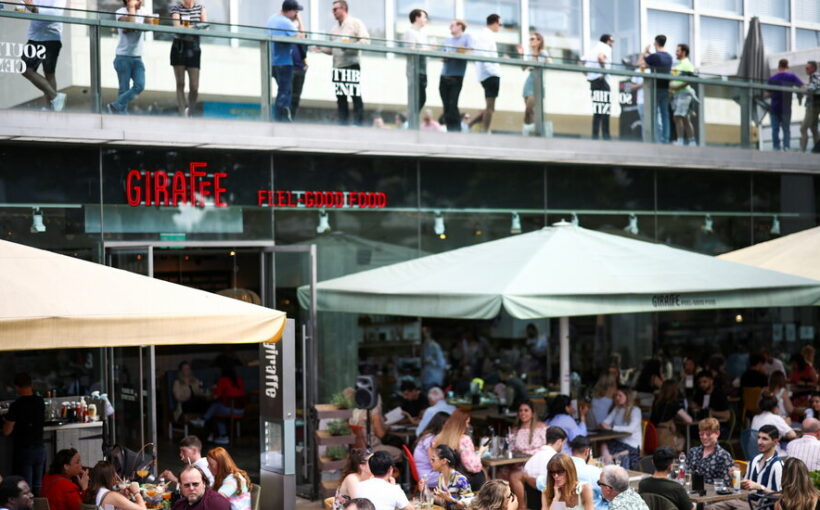By Eshe Nelson
After 15 months of pandemic restrictions on businesses and socializing, England is bracing for the news that it must endure another month of restrictions beyond June 21, the date that had been set for the final lifting of Covid rules.
But many analysts say a delay, put in place to get more people vaccinated as the delta variant of the virus continues to force hospitalizations to rise, would only have a minor economic impact.
Prime Minister Boris Johnson is expected to announce a four-week delay on Monday evening to the third phase of reopening, which would have allowed businesses to operate without capacity restrictions, nightclubs to reopen and sports events to fill their stadiums.
“Unless serious restrictions had to be reimposed, the damage to the U.K. economy would likely be minor,” Holger Schmieding, an economist at Berenberg, a private bank, wrote in a note.
“If a delay materializes as reported, we think the economic significance should be minimal,” analysts at UBS wrote. “Especially with vaccine efficacy against the delta strain now proven after two jabs for Pfizer and AstraZeneca.”
The country’s reopening began in April when nonessential retail resumed and outdoor dining was permitted. That month, the economy grew 2.3 percent from the previous month, and was just 3.7 percent smaller than it was before the pandemic. In May, indoor dining opened, events such as weddings could have more guests, and theaters could open with limited capacity, lifting the economic recovery further.
As businesses have learned to adapt to restrictions — for example, as more restaurants have begun offering takeout service — the economic impact of each lockdown has been smaller. Last year, the economy suffered its worst recession in 300 years because of the severity of the impact of the first lockdown in spring 2020. At the start of this year, when most businesses had shut their doors because of the second wave of the pandemic, the economy contracted only 1.5 percent in the first quarter.
The third phase of the reopening has a smaller economic impact than the first two, “so even if it is postponed it shouldn’t have a major impact on the outlook,” analysts at RBC Capital Markets wrote.
But some industries are predicting another heartfelt blow. The Night Time Industries Association, a trade group which represents night clubs and concert venues, said many businesses were already on a “financial cliff edge” and would close without more government support. UKHospitality said the prospects for many businesses were “grim” and urged the government not to delay reopening.
In April, the economic output of the hospitality industry was 40 percent below its prepandemic level and the arts and recreation sector was down by more than 30 percent, the National Institute of Economic and Social Research said.
“Postponing the last step of reopening may delay the recovery in arts and recreation by a few weeks but, if it helps avoid a third wave of infections, it could contribute to sustained recovery in the second half of the year,” Rory MacQueen, an economist at the London-based think tank, wrote.
Site Index
Site Information Navigation
Source: Read Full Article

